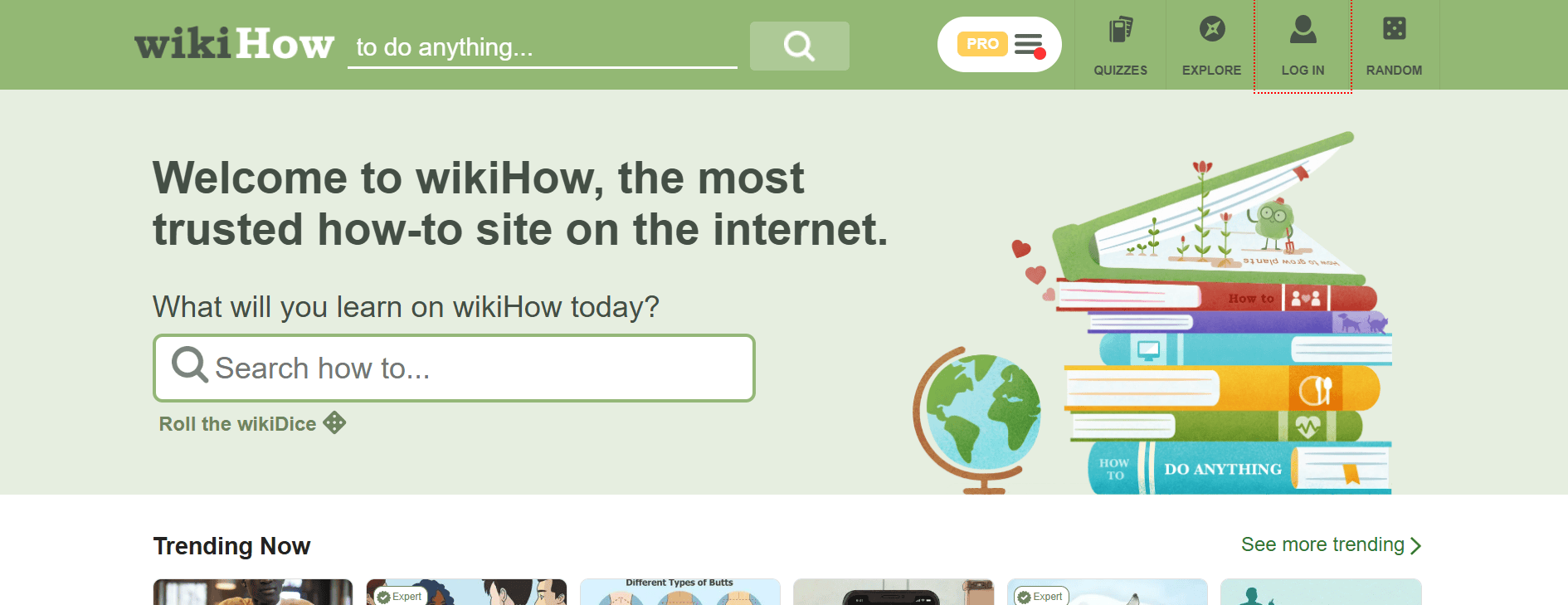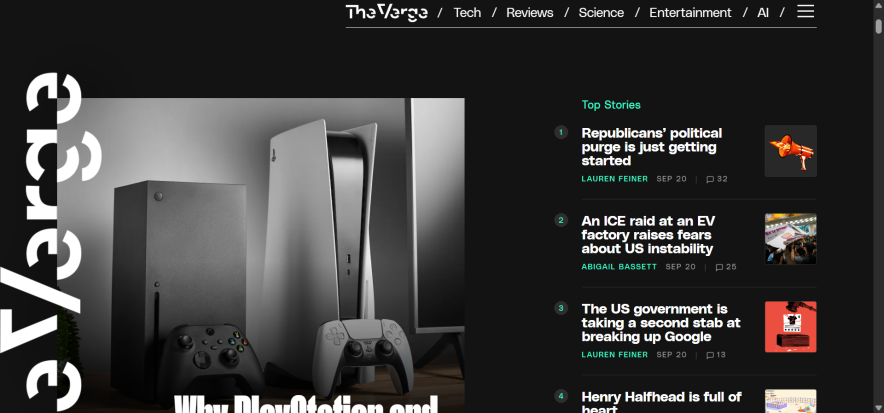Blogging has come a long way from being just an online journal to becoming a powerful platform for sharing ideas, experiences, and even building businesses.
Today, the blogging industry has a market size of $417.85 billion. And this market is filled with many different types of blogs, from personal and lifestyle blogs to niche, business, and affiliate blogs.
In this post, we will explore the most common types of blogs and what makes each of them unique. By the end, you will have a clear picture of the blogging landscape and hopefully a better idea of what kind of blog might suit your own interests or goals.
Let’s quickly get into the details.
Table of Contents
9 Different Types of Blogs Explained [2026]
| Sr. No. | Type of Blog | Key Focus |
|---|---|---|
| 1 | Personal Blogs | Share personal stories, opinions, and experiences; authentic self-expression |
| 2 | Niche Blogs | Focused on a single topic/industry; authority-building and monetization |
| 3 | Business/Corporate Blogs | Represent a brand; share insights, promote products/services |
| 4 | Affiliate Blogs | Recommend products with affiliate links; earn commissions |
| 5 | How-to / Tutorial Blogs | Step-by-step guides, tips, and instructions |
| 6 | Review Blogs | Detailed reviews of products/services; pros, cons, verdict |
| 7 | News Blogs | Cover latest updates, events, and trending topics |
| 8 | Lifestyle Blogs | Cover fashion, travel, food, wellness, and everyday living |
| 9 | Multi-author/Guest Blogs | Multiple writers contributing content; variety of perspectives |

1. Personal Blogs
Personal blogs are usually created by individuals who want to share their own life experiences, opinions, or personal stories with the world. These blogs often cover a mix of subjects that are specific to the blogger and their thoughts.
This type of blog is usually less about following rules and more about expressing yourself in your own voice. And the readers are often drawn to personal blogs because they feel authentic and real.
Many personal bloggers share their daily life, travels, struggles, or even lessons they have learned along the way. Over time, some personal blogs grow into lifestyle or niche blogs if the blogger starts focusing more on a particular theme like parenting, self-improvement, or wellness.
Example:
Take James Clear as an example. James Clear is the author of the famous book, Atomic Habits. And through his personal blog, he shares advice on creativity, habit formation, and focus.
The BIGGEST benefit? You can start a personal blog on any topic you want.

Another good example of personal blogs are:
- A Cup of Jo: Shares everything about food, parenting, and travel.
- Zen Habits: Talks about productivity, self-improvement, and maintaining daily routines.
- Mr. Money Mustache: Covers everything about money and financial independence.
Get the Complete List of Popular Personal Blogs, find interesting details about blogs.
What topics you can cover on a personal blog?
- Personal development (for example, JamesClear.com)
- Finance (for example, My Wife Quit Her Job)
- Fitness (for example, Nerd Fitness)
- Digital photography
- Travel
- Music, Reading, and the list goes on
2. Niche Blogs
Niche blogs are strictly focused on a very specific topic or subject. Unlike personal blogs, a niche blog sticks to one main area of interest. With a niche blog, you can attract an audience that is interested in that one subject by narrowing down your content.
The biggest benefit of niche blogs is that they help you build authority in your chosen subject. Readers (and even Google) start to see you as someone who really knows the topic. This can make your blog more trustworthy and increase your chances of ranking higher in search results.
Plus, advertisers and sponsors love niche blogs because they can directly target the right audience.
Another best thing about niche blogs is that they are easier to monetize. When your content is focused, it’s simpler to recommend products, services, or resources that your audience actually needs.
For example, if you run a fitness niche blog, you can promote workout gear, healthy meal plans, or gym programs that are useful to your readers.
Example:
The best example of a Niche blog is PinchOfYum. This blog only covers everything about food and recipes. They have maintained this blog excellently with amazing photography and mouth-watering recipes.

Other niche blogs that you should check are:
- The Blonde Salad: Fashion expert who shares everything about the latest fashion.
- Mia Mia Mine: Fashion blog that covers trendy outfits and fashion tips.
Bonus Read: Get inspired by the top female bloggers across various blog types and niches.
3. Business/Corporate Blogs
Business or corporate blogs are blogs that companies use to connect with their audience, customers, and even potential clients. These blogs usually focus on topics that are closely related to the company’s industry, products, or services.
One major benefit of a business blog is that it helps establish authority in the market. When businesses consistently share valuable insights, readers start seeing them as knowledgeable and reliable. This not only builds credibility but also plays a big role in customer loyalty.
And not only authority, it also helps in boosting marketing and sales efforts. These blogs help improve your company’s presence on search engines. Every time you (as a business) publish a well-optimized post, it increases your chances of being discovered by people searching for solutions online.
Example:
Business Insider is the best example of a business blog that offers articles on innovation, technology, leadership, and economic news.

Another Business/Corporate Blogs worth checking are:
- TechCrunch: A perfect resource for trends and news in the technology sector.
- Zing by Quicken: A corporate blog that provides inspiration and information.
- Small Business Trends: Here you will find financial, marketing, and management advice for small businesses.
4. Affiliate Blogs
Affiliate blogs are created mainly with the purpose of earning money by promoting products or services.
Here, as an affiliate blogger, you share helpful content, recommend certain products by including special affiliate links. When a reader clicks on those links and makes a purchase, the blogger earns a commission.
Affiliate blogs typically include reviews, comparisons, buying guides, or “best of” lists. This means, as a blogger, you help readers make smart buying decisions while earning from the products recommended.
Since people are always searching online before making a purchase, a well-written affiliate post can attract a steady flow of readers. If those readers find value in the content and trust your recommendations, they are more likely to buy through the affiliate links provided.
Example:
BloggersPassion: is the best affiliate blog example you will find. Blog owner Pat Flynn has amazingly maintained and monetized this blog.

Other best affiliate blogs are:
- Smart Passive Income : Covers everything about blogging and SEO tools.
5. How-to / Tutorial Blogs
How-to or tutorial blogs are all about teaching people how to do something step by step. They focus on solving specific problems by breaking down the process into easy-to-follow instructions.
These blogs are super popular because almost everyone looks online when they want to learn a new skill or figure out how something works. A how-to blog answers those exact questions. The content is usually practical, simple, and written in a way that even beginners can understand.
Many successful bloggers even combine tutorial content with affiliate marketing. For instance, a blogger teaching “How to start a podcast” might also recommend microphones, recording software, or hosting platforms, all through affiliate links.
What matters most is giving accurate, clear, and easy-to-apply instructions.
Example:
WikiHow is the greatest example of how to guide and tutorial blogs. It covers step-by-step guides and detailed instructions, and hacks to solve any of your problems.

Below are the other best How-to blogs:
- Instructables: Best for DIY projects in literally every category.
- ehow: Covers everything from DIY instructions to life hacks.
- Wonder How To: How-to guides and technology tutorials.
6. Review Blogs
Review blogs focus on giving opinions, insights, and detailed feedback about products, services, or even experiences. The main goal of a review blog is to help readers make informed decisions before they spend their money or time on something.
Since most people these days check online reviews before buying, review blogs have become incredibly popular and influential. As a Review blogger, you can cover things like gadgets, mobile apps, books, tools, restaurants, travel destinations, or even online courses.
A typical review blog post usually explains what the product or service is, talks about its features, highlights the pros and cons, and then gives an honest verdict.
These types of blogs also work really well for monetization. Many review bloggers join affiliate programs, so when readers buy the product through their link, the blogger earns a commission.
For example, a tech review blogger might review laptops or cameras and include affiliate links to buy them. This way, readers get useful advice, and the blogger can earn at the same time.
Example:
The best review blog, I think, is The Verge. It offers extensive reviews on gadgets, software, and digital culture.

Other review blogs to check out are:
- CNET: The best source for technology reviews, news, and advice.
- The Wirecutter: Best for in-depth reviews of products and recommendations around various categories.
- TechRadar: This blog covers reviews on the latest technology and gadgets.
7. News Blogs
As the name suggests, News blogs cover fresh news, latest updates, stories, and information about current events. These blogs typically share a wide range of areas such as politics, technology, sports, entertainment, lifestyle, business, or even hyper-local community news.
The main goal of a news blog is to keep readers informed in a quick, easy-to-digest format. Instead of lengthy reports, news blogs often break things down in a way that’s more relatable and easier to follow.
Some news blogs are broad, covering all sorts of breaking stories, while others focus on a niche area like tech news or celebrity gossip.
For example, a tech news blog might post about the latest smartphone launches, software updates, or major company announcements. An entertainment news blog might cover movie releases, celebrity updates, or award shows.
Example:
The best example of a news blog is BBC News. It is a great source of global news and current events.

Take a look at a few other news blogs:
- The Guardian: Best for fresh news updates and liberal point of view.
- Wired: Covers everything about technology news and updates.
- The Wall Street Journal: A major financial publication and news about markets and businesses.
8. Lifestyle Blogs
Lifestyle blogs are probably the most versatile and wide-ranging type of blog you will come across. They bring together different parts of the blogger’s life and interests, like fashion, beauty, home décor, travel, wellness, food, career, or even day-to-day routines.
It is about showing how the blogger lives or what they enjoy, and letting readers take away tips or motivation for their own lives.
Such bloggers rely heavily on photos, Instagram-style posts, or even short videos to complement the writing. Because lifestyle blogging is so aesthetics-driven, bloggers often create a certain vibe or brand that reflects who they are and attracts like-minded readers.
They are also some of the easiest to monetize, through brand collaborations, product sponsorships, affiliate links, or even selling digital products like planners or guides.
Brands especially love working with lifestyle bloggers because their content feels authentic and relatable, making recommendations more effective.
Example:
The Skinny Confidential is the most popular lifestyle blog. It covers everything from beauty, fitness, to relationships.

A few other lifestyle blogs are:
- Cupcakes And Cashmere: Here you will find guides on home, lifestyle, and food topics, including fashion.
- The Blonde Abroad: This blog covers lifestyle and travel experiences featuring adventure and well being.
- The Good Trade: This resource focuses on sustainable and ethical living by covering lifestyle topics.
Multi-author or guest blogs are blogs that don’t rely on just one person’s voice, but instead bring together contributions from several writers. Compared to personal or lifestyle blogs, these types of blogs feel more like a shared platform or community space.
In a multi-author blog, the content is usually managed under one central brand or website, but the posts come from different writers. For example, many big online publications, news sites, or industry-specific portals operate as multi-author blogs. Even smaller blogs sometimes follow this model by inviting guest writers to contribute.
The main advantage here is variety. Since each writer brings their own expertise, ideas, and writing style, the blog ends up covering more topics and offering different perspectives.
Example:
HubSpot Blog is a great website that offers guest blogging. It is a customer platform (CRM + marketing + sales + service tools) that helps businesses attract, engage, and retain customers using inbound marketing and AI-powered solutions.
Final Thoughts
There are literally dozens of different blog categories out there. The key to finding the right category is to know your passion and skills.
Then, use keyword tools to find the competition for topics you want to rank for. Analyzing your competitors also helps you determine the profitability of your blog topic.
So what do you think about different types of blogs? Which category are you going to consider to launch your blog? Have any questions? Let us know in the comments.
FAQs
Here are some of the frequently asked questions about blog categories list and different types of blogs.
Self-hosted WordPress is the best CMS (Content management system) in the world and offers plenty of themes and plugins to smoothly run your blog or website.
All types of blogs can make money, it really depends on your niche, content quality, and monetization strategy. However, affiliate, niche, review, and business blogs are often the most profitable when done right.
Yes, blogging is profitable. The key to blogging success is to differentiate yourself with quality content and products.
You can use keyword tools like Semrush, analyze your competitors’ top-performing pages, and use platforms like Quora to come up with new topic ideas for your blog.
Some of the high-demanding blogs are:
– Finance
– Beauty and Fashion
– Fitness


